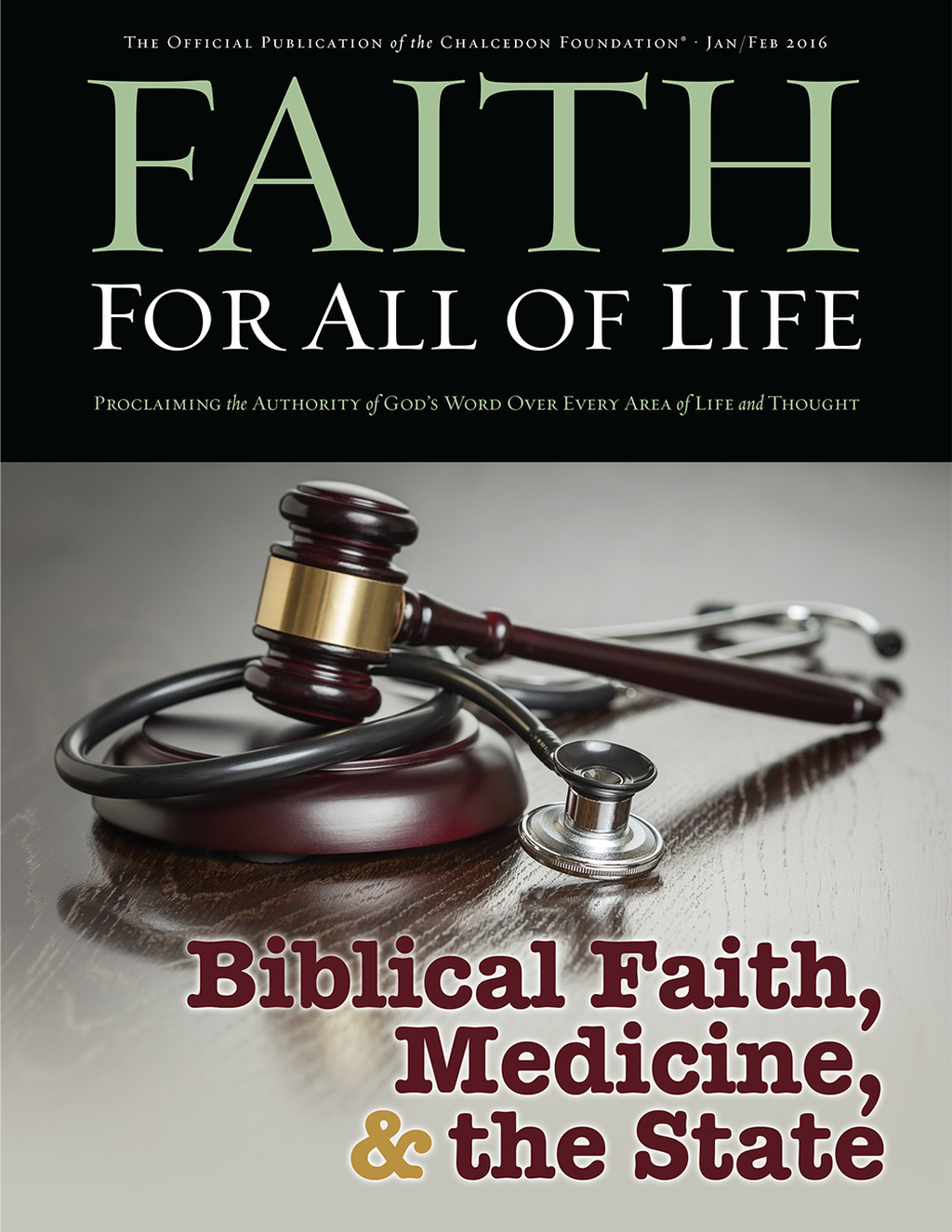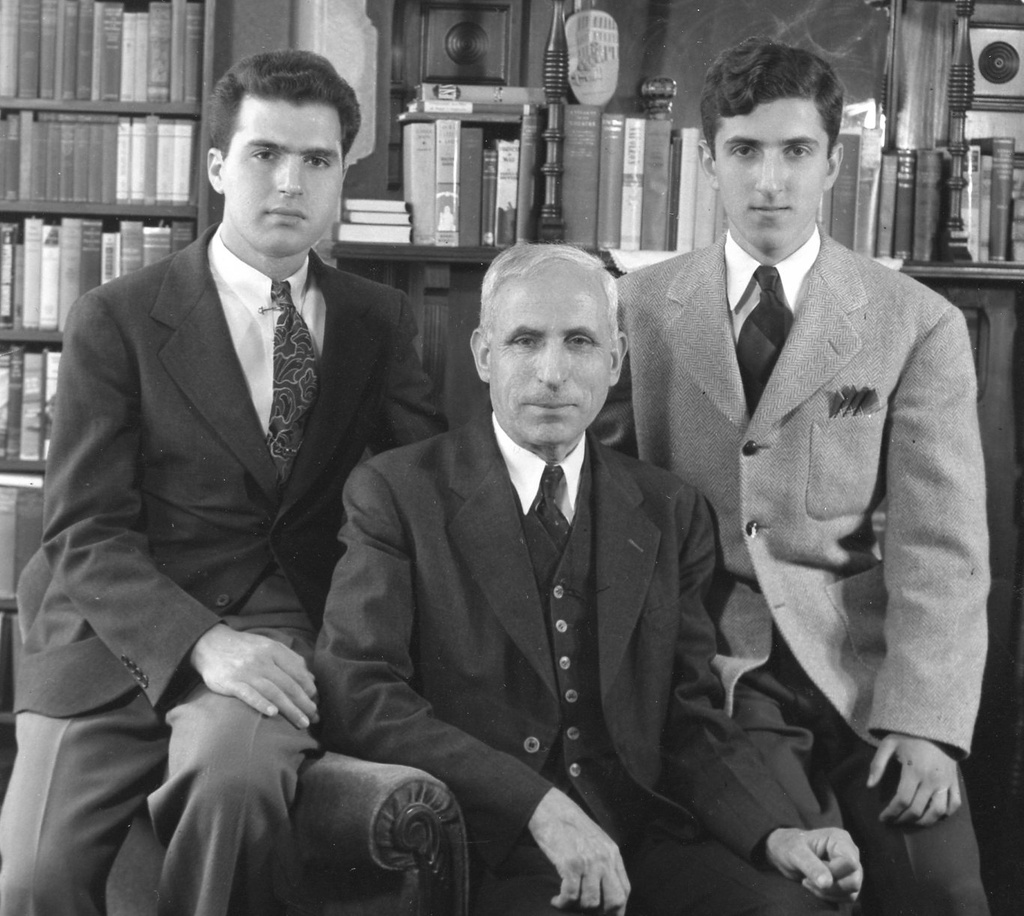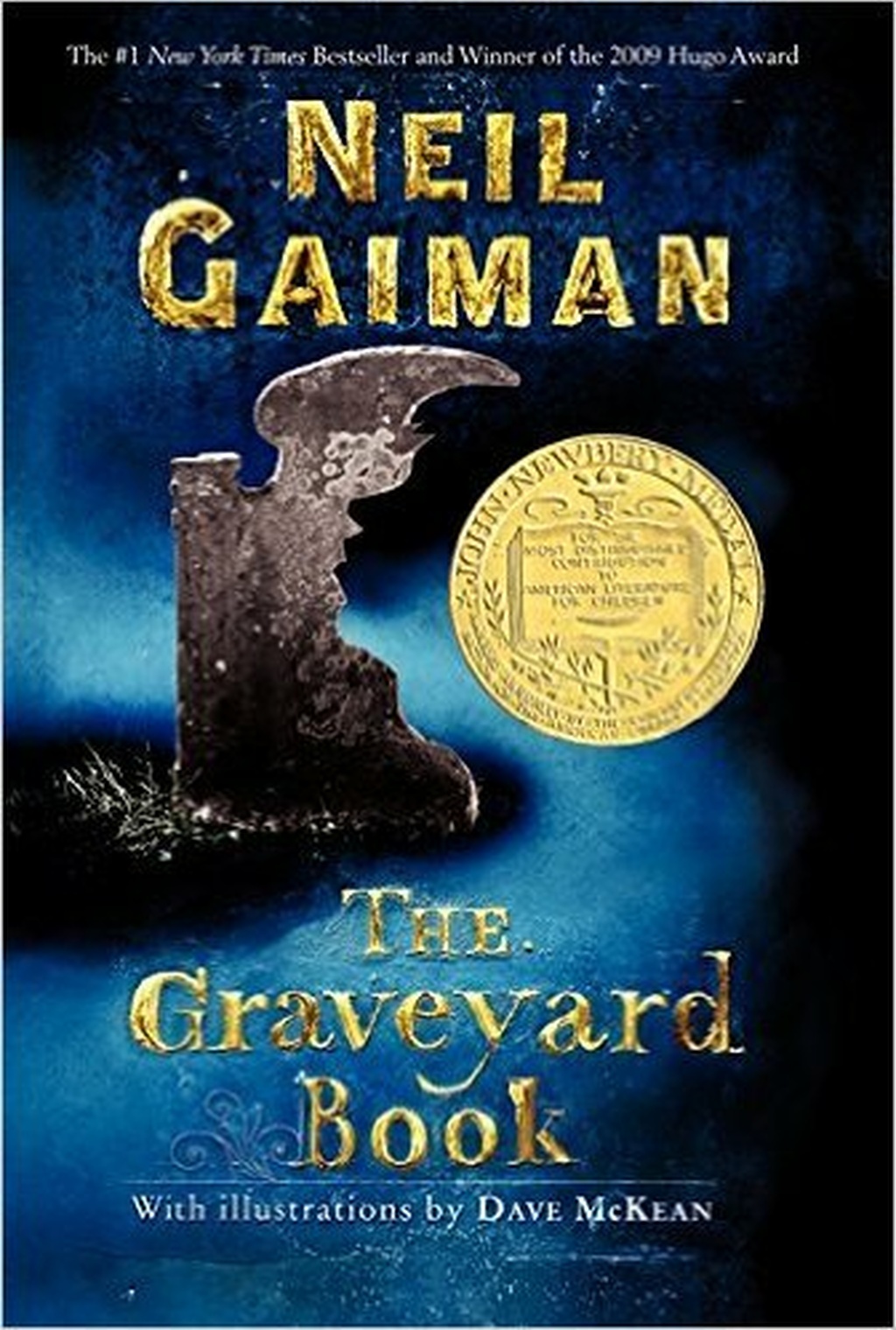
Magazine Issue
Biblical Faith, Medicine, and the State
Has the State gone too far in its propagation of dangerous "cures" that only make opioid addiction worse?
January-February 2016 Articles:

Rousas John Rushdoony: A Brief History, Part 1 “I Am Armenian”

- Mark R. Rushdoony
Biblical Faith, Medicine, and the State: Repairing the Breach During the Spreading Epidemic (12)

- Martin G. Selbrede
Rushdoony and the Comprehensive Law of God Today
- Ian Hodge
Self-Defense from a Biblical Perspective

- Andrea G. Schwartz
Can Movies Be Claimed for Christ’s Kingdom?

- Lee Duigon

A Review of "The Graveyard"

- Lee Duigon